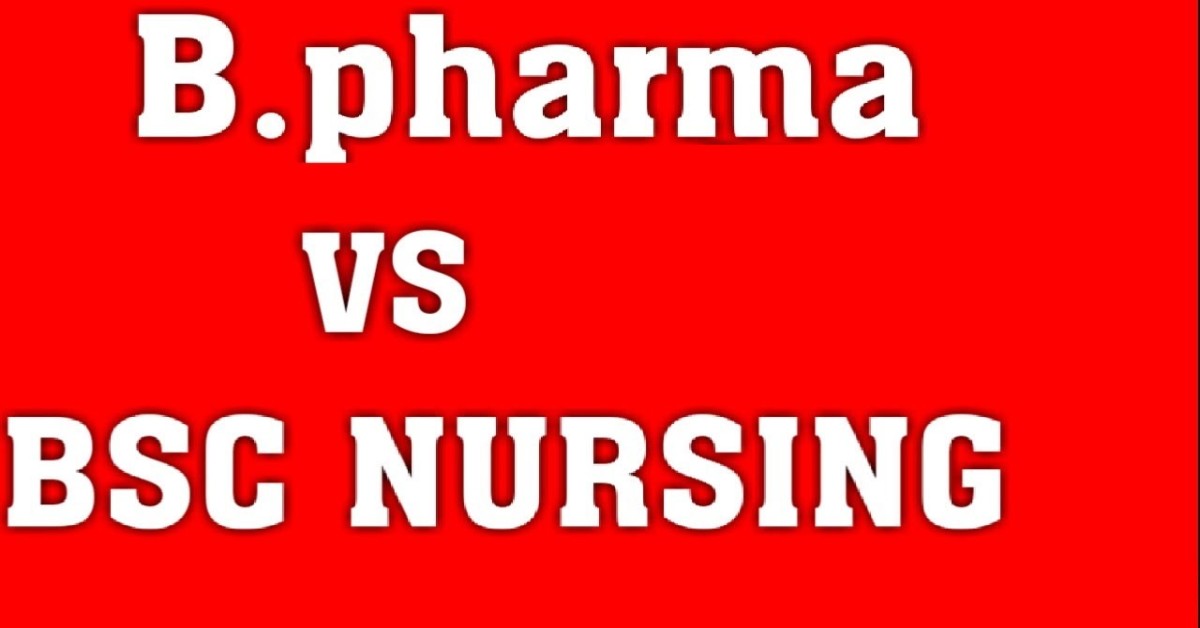There are several courses that a student with a science stream can opt for after the completion of 10+2. BSc Nursing and B Pharma are some of the most popular courses among students. Both the courses are promising and lucrative and this is the reason that students find it difficult to choose between the two courses. This article will help you understand better about both the courses.
ABOUT B.SC NURSING
BSc Nursing is a 4-year undergraduate course in which the medical aspirants get thorough knowledge and training in the processes of wellness, illness management, and health promotion. This is a paramedical course that not only imparts theoretical knowledge but also teaches compassion and empathy towards the patients. By doing this course, students become adept in dealing with and taking care of the patients.
ABOUT BPHARMA
B.Pharma is also a four-year undergraduate course pursued by students after the completion of 10+2. This course focuses on the study of the methods and process of preparing, dispensing, consuming, advantages and disadvantages of drugs and medicines.
Here are various differences between BSc Nursing and B Pharma:-
BSC NURSING |
B PHARMA |
| The minimum qualification required to pursue this course is 10+2 with Physics, Chemistry and Biology as compulsory subjects. | The minimum qualification required to pursue this course is 10 +2 with Physics, Chemistry and Biology/ Mathematics as compulsory subjects. |
| The minimum age limit for doing this course is 17years and the maximum age limit is 35years. | The minimum age limit for doing this course is 17years and the maximum age limit is 31years. |
| The course fee per year is 80,000rs to 1 lakh | The course fee per year is 60,000rs to 70,000rs |
| Admission is done on a merit based or by qualifying for entrance exam conducted at National, State or University level. | Admission is done on a merit based or by qualifying for entrance exam conducted at National, State or University level. |
| Syllabus includes
· Anatomy · Physiology · Nutrition and Biochemistry · Nursing Foundation · Physiology · Microbiology · English · Introduction to Computers · Medical Surgical Nursing-I · Pharmacology, Pathology and Genetics · Community Health Nursing-I · Communication and Educational Technology · Medical Surgical Nursing-II · Child Health Nursing · Mental Health Nursing · Nursing Research and Statistics · English Communication and Soft Skills · Midwifery and Obstetric Nursing · Community Health Nursing · Management of Nursing Services and Education · Environment Study |
Syllabus includes
· Human Anatomy and Physiology I · Pharmaceutical Analysis · Pharmaceutics · Pharmaceutical Inorganic Chemistry · Communication skills · Remedial Biology/Remedial Mathematics · Human Anatomy and Physiology II · Pharmaceutical Organic Chemistry I · Biochemistry · Pathophysiology · Computer Applications in Pharmacy · Environmental sciences · Pharmaceutical Organic Chemistry II · Physical Pharmaceutics I · Pharmaceutical Microbiology · Pharmaceutical Engineering · Pharmaceutical Organic Chemistry III · Medicinal Chemistry I · Physical Pharmaceutics II · Pharmacology I · Pharmacognosy and Phytochemistry I · Medicinal Chemistry II · Industrial Pharmacy I · Pharmacology II |
| The job profiles include
· Staff Nurse · Nursing Superintendent · Community Health Nurse · Nursing Tutor · Home Care Nurse · Ward Nurse · Nurse Manager · Nurse Assistant · Nursing Tutor · Junior Psychiatric Nurse |
The job profiles
· Medical Writer · Clinical Research Associate · Drug Safety Associate · Drug Inspector · Pharmaceutical Scientist · Formulation Development Associate · Sales/ Marketing Executive · Pharmacy Stores · QA/QC Associate |
